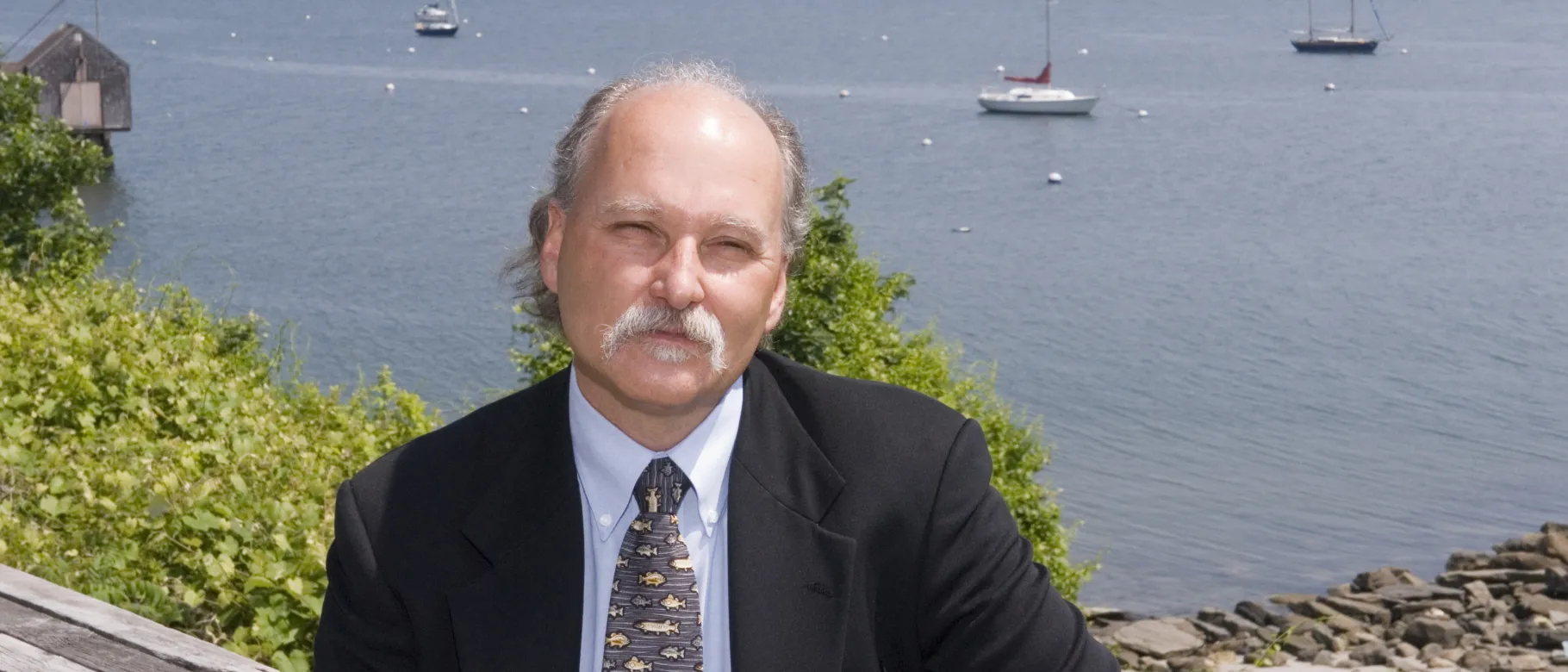UNE’s Barry Costa-Pierce gives keynote lecture on priorities to develop Maine’s "Blue Bioeconomy"

Barry Costa-Pierce, Ph.D., Henry L. & Grace Doherty Professor of Marine Sciences and executive director of UNE NORTH: Institute for North Atlantic Studies, recently gave the keynote lecture at the 2018 Established Program to Stimulate Competitive Research (EPSCoR) meeting at the University of Maine in Orono.
In his talk “Global Transdisciplinary Research Opportunities in Ocean Food Systems,” Costa-Pierce emphasized the artificial divide between fisheries, aquaculture, and seafood trade, and the adverse economic impacts due to the lack of integration.
He cited a United Nation’s Food and Agriculture Organization’s expert report that found “Fisheries and aquaculture interact with increasing intensity as fishers shift from fishing to aquaculture and by competing in the same markets with similar products." The report also noted the "need to integrate planning and management of the two sectors seems vital to their future development and sustainability.”
Costa-Pierce spoke of the multiple, on-going research/industry consortia in Europe and Canada working to develop the “Blue Bioeconomy.”
He detailed innovation research priorities for the more comprehensive development of the ocean food systems economy in Maine.
The Maine EPSCoR program is funded by the National Science Foundation. Its mission is to build Maine's scientific research capacity by supporting the education and training of a diverse Science, Technology, Engineering and Math workforce.
The Maine EPSCoR received $20 million in 2013 for a five-year investment in SEANET, the “Sustainable, Ecological Aquaculture Network.” It has contributed greatly to building aquaculture research capacity throughout Maine.